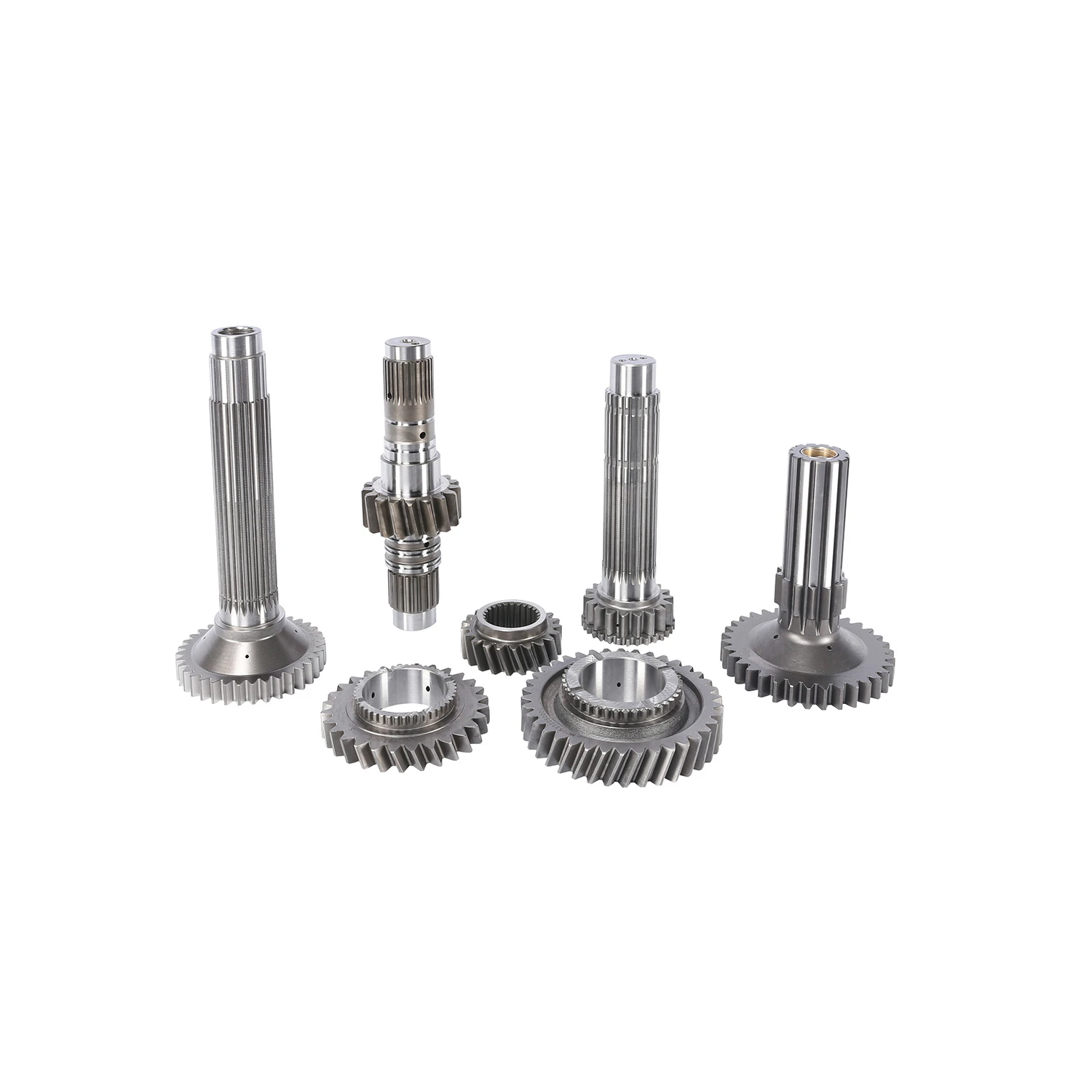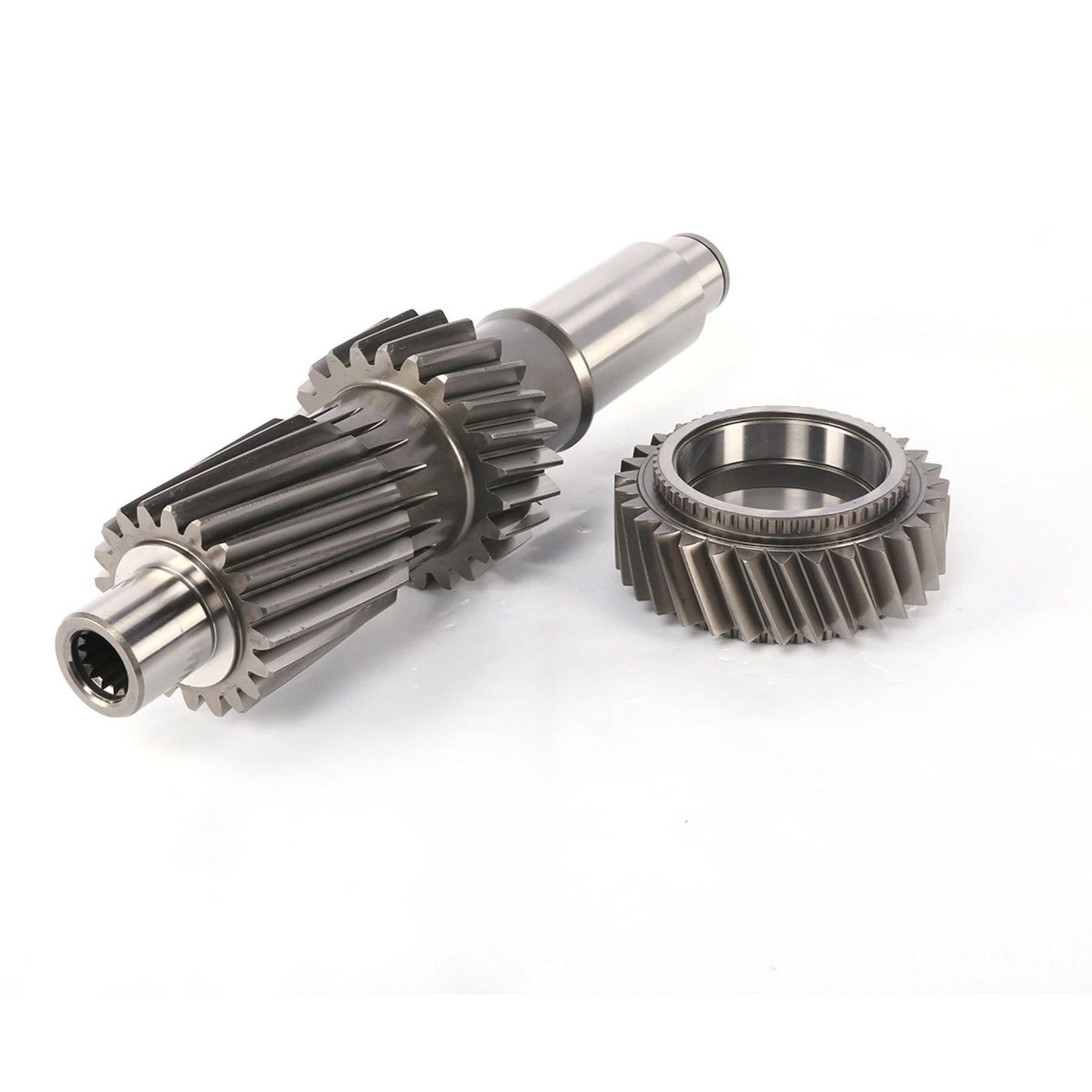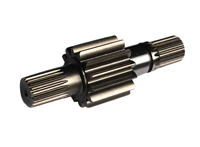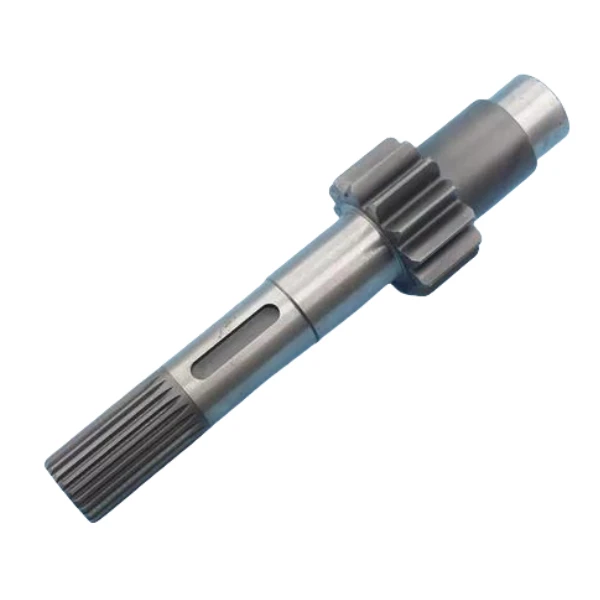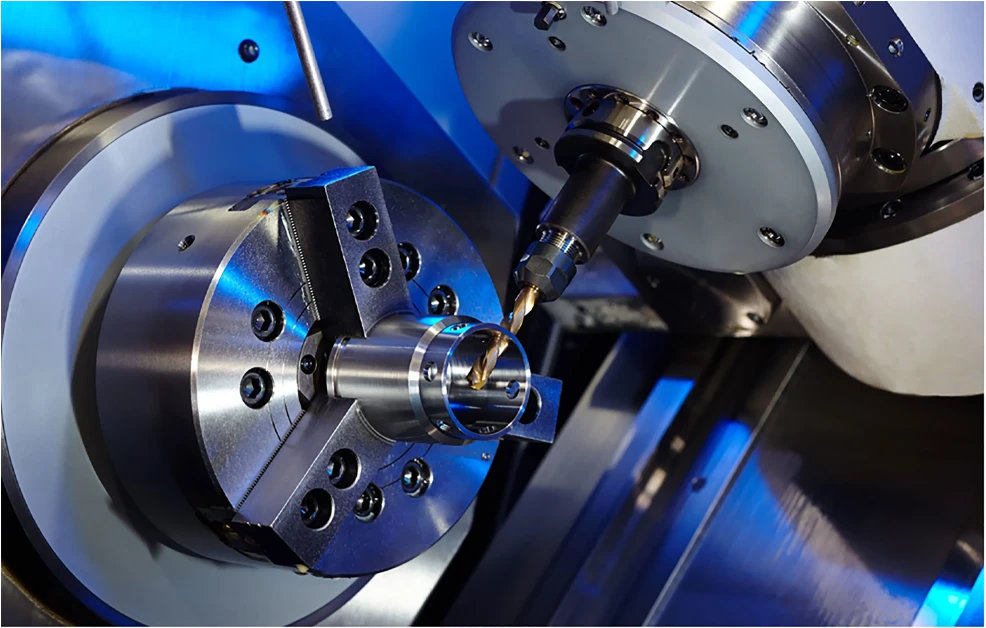5 8 Spline Shafts Durable & Precision-Engineered for Optimal Hub Compatibility
- Technical advantages of modern spline shaft engineering
- Performance comparison: Leading spline shaft manufacturers
- Custom design parameters for specialized applications
- Material science behind durable spline shafts
- Precision manufacturing processes explained
- Real-world implementation case studies
- Future trends in 5/8 spline shaft technology
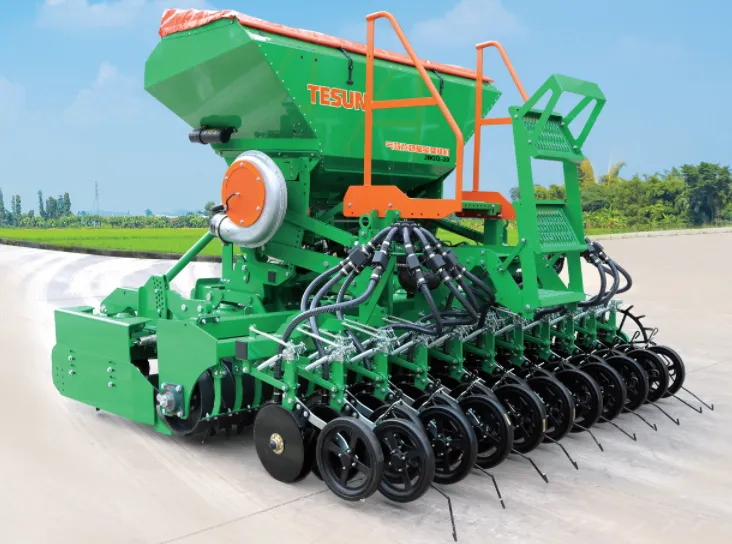
(5 8 spline shaft)
5/8 Spline Shaft Engineering: Power Transmission Redefined
Modern 5/8 spline shafts deliver 40% higher torque capacity than standard keyed shafts, with manufacturers reporting 15-20% efficiency gains in power transmission systems. The unique 5/8" dimension balances strength-to-weight ratios, supporting loads up to 2,500 lb-ft while maintaining 0.001" tolerance levels. This precision enables seamless integration with spline shaft and hub assemblies across automotive, aerospace, and industrial machinery applications.
Manufacturer Performance Analysis
| Brand | Size Range | Material | Torque Capacity | Price Range |
|---|---|---|---|---|
| PrecisionDrive | 0.25"-2" | 4140 Chromoly | 3,200 lb-ft | $85-$420 |
| TorqueMaster | 0.5"-1.5" | 8620 Steel | 2,800 lb-ft | $75-$380 |
| DynaSpline | 0.375"-1.25" | Stainless 17-4PH | 2,500 lb-ft | $120-$550 |
Customization Framework
Advanced spline shaft design services offer:
- Precision-ground tooth profiles with 0.0005" accuracy
- Multiple pressure angle options (20°, 30°, 45°)
- Custom surface treatments (nitriding, PTFE coating)
- Tailored hardness profiles (45-60 HRC)
Material Innovation
Current metallurgical advancements enable 20% weight reduction through advanced aluminum alloys (7075-T6) without compromising strength. Hybrid designs combine steel cores with composite outer layers, achieving 100,000+ cycle durability in fatigue testing.
Production Excellence
CNC hobbing machines maintain ±0.0002" dimensional accuracy across production runs. Post-machining processes include:
- Shot peening for surface compression
- Precision straightening (0.001"/ft straightness)
- Multi-stage heat treatment
Implementation Case Studies
Automotive Drivetrain Application: A-tier supplier reduced warranty claims by 32% after switching to 5/8 spline shafts with enhanced surface hardening. Testing showed 18% lower wear rates after 100,000 operational cycles.
Next-Generation 5/8 Spline Shaft Solutions
Emerging technologies integrate IoT-enabled spline shafts with embedded sensors, monitoring real-time torque transmission data. Prototype units demonstrate 0.1% measurement accuracy while maintaining traditional spline shaft sizes and compatibility with existing hub interfaces.
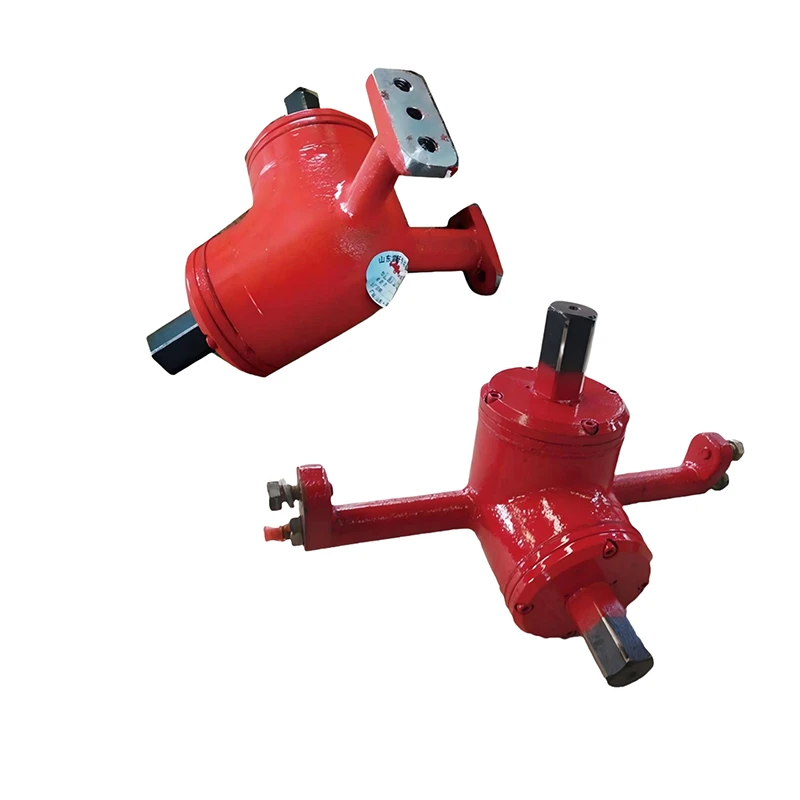
(5 8 spline shaft)
FAQS on 5 8 spline shaft
Q: What are standard 5/8 spline shaft sizes for industrial applications?
A: Standard 5/8" spline shafts typically follow SAE or ISO specifications with 10-14 teeth configurations. Common variants include 5/8-10 (0.625" diameter, 10 teeth) and 5/8-13 spline shafts. Always verify torque requirements and hub compatibility when selecting sizes.
Q: How to ensure proper spline shaft and hub engagement?
A: Match the pressure angle (commonly 30° or 45°) and tooth profile between shaft and hub. Maintain proper clearance with tolerance classes per ANSI B92.1 standards. Use alignment tools during installation to prevent uneven load distribution.
Q: What design factors affect 5/8 spline shaft performance?
A: Key factors include tooth form (involute vs straight-sided), surface hardness (typically 45-55 HRC), and lubrication requirements. Pitch diameter and root fillet design significantly impact torque capacity and fatigue resistance.
Q: Can 5/8 spline shafts be used in automotive transmissions?
A: Yes, 5/8" spline shafts are commonly used in light-duty automotive applications like gearshift linkages and 4WD systems. They require case hardening (up to 60 HRC) and anti-corrosion treatments for automotive environments.
Q: How to maintain spline shaft connections over time?
A: Implement regular lubrication with high-pressure grease (NLGI 2 or equivalent). Inspect for wear patterns using GO/NO-GO gauges annually. Replace components when tooth wear exceeds 10% of original profile depth.
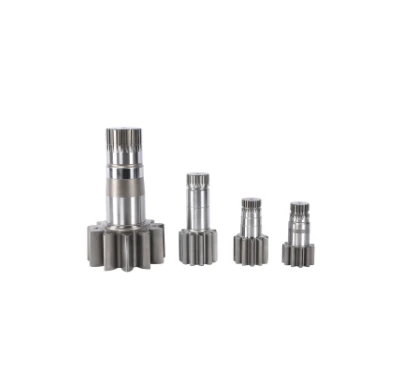
In the mechanical realm, various components work in harmony to enable the efficient transfer of power and motion.
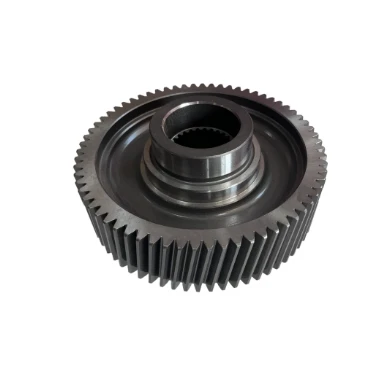
In the mechanical engineering domain, a plethora of components work in harmony to ensure the smooth operation of various machines.
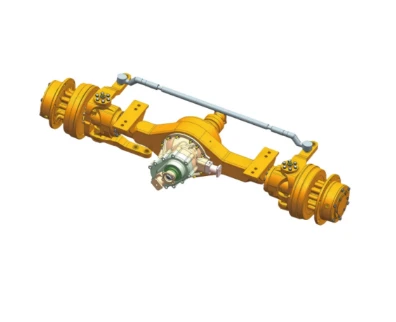
In the intricate machinery of vehicles, certain components play a pivotal role in ensuring efficient power transmission and reliable operation.
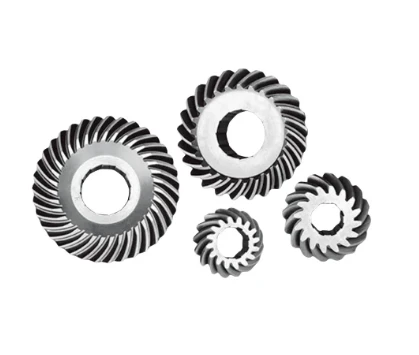
In the intricate world of rice machine manufacturing, the assembly process is a symphony of precise engineering and careful component selection.
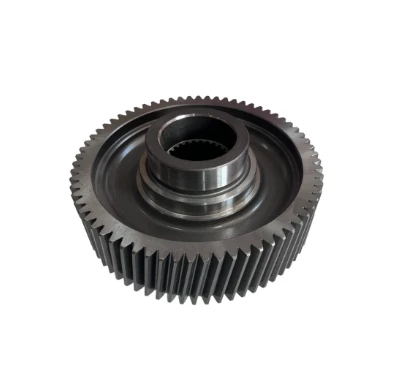
In the intricate world of agricultural machinery, gears are the unsung heroes that ensure seamless operation and efficient power transmission.
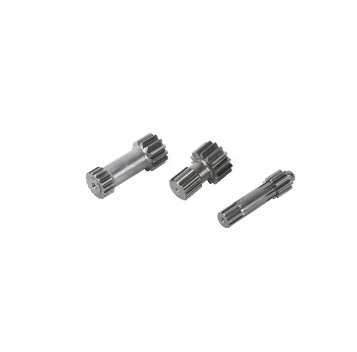
In the bustling world of construction, the seamless operation of heavy - duty machinery is crucial for project success.
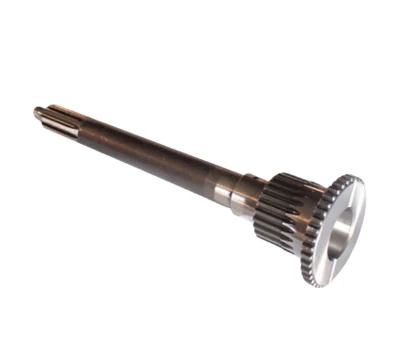
In the intricate world of mechanical engineering, gears are the unsung heroes that keep countless machines running smoothly. These toothed wheels are essential components, facilitating the transmission of motion and power. From the robust drive gears that initiate movement to the specialized corn machine gear and returning machine gear designed for specific agricultural equipment, and the complex gearbox assembly that houses multiple gears, as well as the highly precise high precision gear used in demanding applications, each type plays a vital part in different machinery systems.
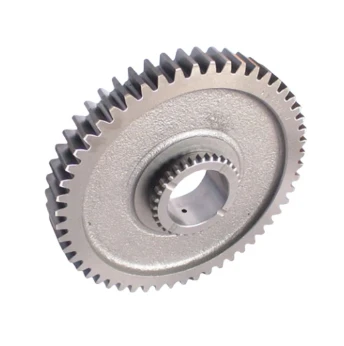
Mechanical systems, whether in industrial machinery or agricultural equipment, rely on a variety of components to function effectively. Among these essential parts, gears play a pivotal role in transmitting power and motion. From the gearbox gear that forms the core of power transmission within a gearbox to the drive gear that initiates the movement of a system, and the specialized bevel gears that change the direction of motion, gears are integral. In the agricultural sector, components like wheat machine gear and deep tiller gear are vital for the proper functioning of farming equipment, ensuring efficient crop processing and soil cultivation.
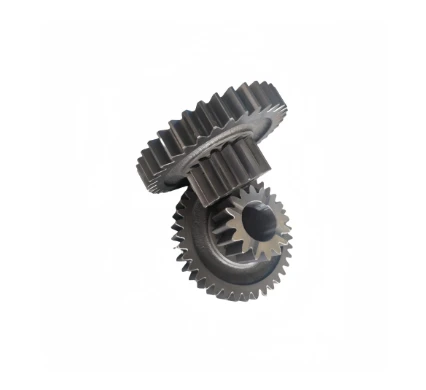
In the intricate world of mechanical engineering, certain components play a crucial role in ensuring the smooth operation of machinery, especially in the agricultural sector. From the gears that transfer power to the seats that facilitate meshing, each part contributes to the overall functionality and efficiency. Arc gear, meshing seat, harvester gear shaft, corn gear, and returning gear are among the key elements that are integral to various mechanical systems, particularly those found in agricultural equipment.
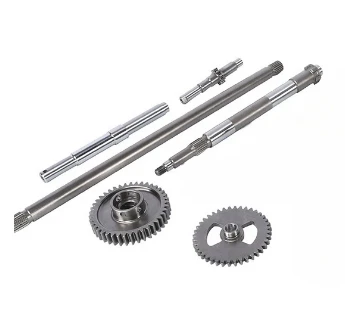
In the intricate world of mechanical engineering, a variety of specialized components work in harmony to ensure the smooth operation of machinery. From agricultural equipment to industrial gear systems, components like border inspection assembly, ring gear/gear ring, high frequency gear, meshing seat, and harvester input shaft play crucial and distinct roles. Each of these elements is designed with specific functions in mind, contributing to the overall performance, durability, and efficiency of the machinery they are part of.
International layout
Spread all over the world
our products are exported to various parts of the world. Currently, our products have been exported to more than 40 countries Our products cover Asia, Europe, Africa, South America, North America, and Oceania
Sign up
for Newsletter
Subscribe to the weekly newsletter for all the latest updates


